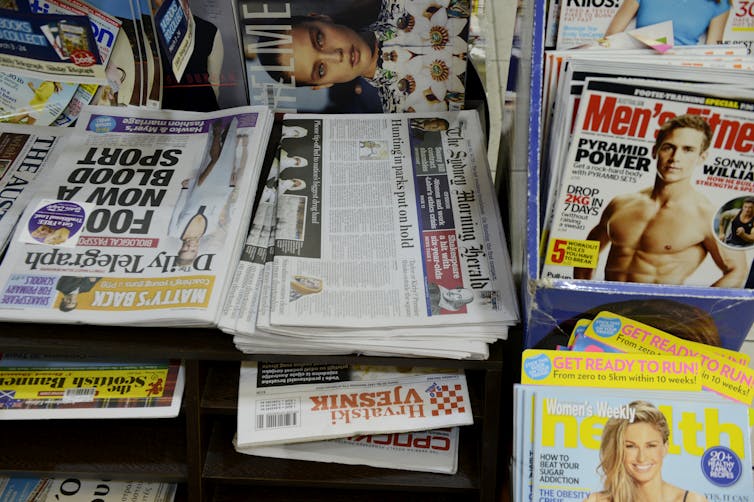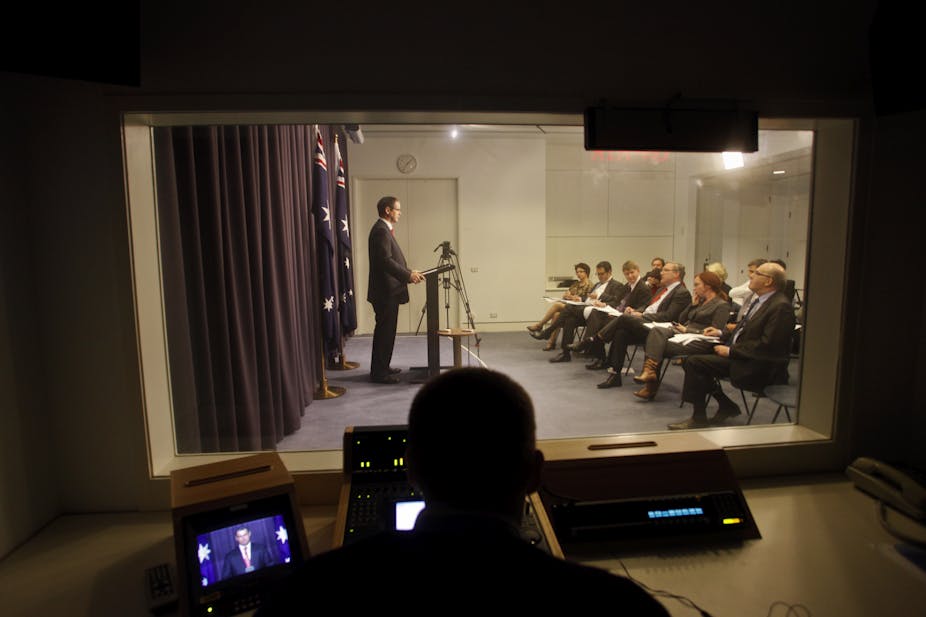It is just a week since the Gillard government withdrew the four media reform bills for which it could not garner the necessary support from the crossbench MPs.
The proposal that concerned me most as a media law scholar and free expression advocate was the News Media (Self-regulation) Bill. This would have given an individual the power to deregister bodies, like the Australian Press Council, if they failed to police effectively the ethical standards of their newspaper and online members.
The big stick the so-called Public Interest Media Advocate would have wielded was the withdrawal of media companies’ journalism exemption from the Privacy Act - a penalty that stood to send newspapers broke through its demands of bureaucratic compliance. I detailed this problem in a blog republished on The Conversation last week, describing it as a defacto form of licensing. Many vested political and commercial interests were at stake in this debate.
There are lessons for all to learn from the events of the past fortnight and from the broader media regulation debate of the preceding year. Free expression is often described as a “fragile freedom”, perpetually at risk in a democracy like Australia where it lacks any explicit constitutional protection.
It is a mistake to view free expression through the lens of your own political allegiances. My observation after more than two decades researching in the area and several years as Australia’s correspondent for Reporters Without Borders, is that governments of all political persuasions can present major threats to media freedom.
The conservative Howard government was responsible for more than 30 anti-terror laws introduced after 2001, many of which impinged on the reportage of important national security issues and cases. It also used Cabinet exemptions to freedom of information laws to deprive the media of access to important documents of legitimate public interest and refused to reform those laws for increased transparency of its processes.
The Rudd Labor government started well by revamping freedom of information laws under the stewardship of then-Special Minister of State John Faulkner. But communications minister Stephen Conroy’s determined and drawn out push for an internet filtering scheme was an early sign that here was a minister prepared to compromise free expression - and not just that of the big media companies.
He pursued that proposal for four years - and I can attest to the ongoing concern of Reporters Without Borders’ internet desk and the proposal’s detrimental impact on Australia’s press freedom ranking over that period. The organisation ranked Australia as “under surveillance” on its Enemies of the Internet list in 2012 because of this proposal.
The latest reform push was sparked in a politically-charged retaliation to perceived attacks by the Murdoch press upon both Labor and the Greens against a backdrop of the News of the World saga in the UK.
While there had been discussion of models for reform over the past 18 months, the attempt to rush the bills through parliament in just a few days concerned my colleagues at Reporters Without Borders in Paris. Of special alarm was the statutory self-regulation mechanism involving the loss of privacy law protection that seemed to have no review-based origins, bearing no resemblance to recommendations from the Convergence Review or Finkelstein models that had been debated.
A clue to its origin came this week with the release of the New Zealand Law Reform Commission’s long-awaited media regulation review. It recommended the withdrawal of privacy and other media exemptions for any news media outlets unwilling to sign up to a pan-industry self-regulator. Perhaps there were some whispers across the Tasman?
Of added concern to Reporters Without Borders was the misuse of its World Press Freedom Index ranking system by both Conroy and Gillard in support of their statutory model. They pointed to the fact that the number one country - Finland - has a statutory regulation system, but failed to mention that it does not involve a penalty of almost certain death for recalcitrant companies and that it operates against a backdrop of a constitutional free speech protection.

Big media companies also deserved criticism for their failure to distinguish their commercial interests from the broader public interest in free expression. Major media organisations need to “walk the walk” of media freedom on an ongoing basis - and not just “talk the talk” when their businesses are under threat.
The major publishers need to accept some responsibility for this recent attack and its near success, because some mastheads, most notably The Australian and the Daily Telegraph, have been at times unfair in their attacks on individuals with opposing views.
The Australian often describes its critics as “strident”, but that is exactly how it sounded during this latest threat. The Daily Telegraph’s depiction of Conroy as Joseph Stalin in true London tabloid style was a strategic error for exactly that reason. It demonstrated that some of its editors have failed to grasp the scale of the News of the World saga and the message that such coverage now sends.
News Limited titles campaigned strongly against a Bill of Rights - which would have at least enshrined free expression at a constitutional level as a partial defence to this kind of legislative assault - as is the situation in other western democracies. The major media groups slashed Press Council funding by 30% four years ago, which I reported at the time, leaving it under-resourced and vulnerable to the serious criticism levelled at it in the Finkelstein Inquiry.
The major media groups should take from this episode a resolve to exercise their free expression more responsibly - even to the extent of protecting the right of others to speak against them in their own columns.
They also need to make absolutely sure their new Press Council model operates independently and effectively. Because the world now knows that a respected democracy like Australia might at any moment be just a few votes - and just a few days - away from licensing its press.

